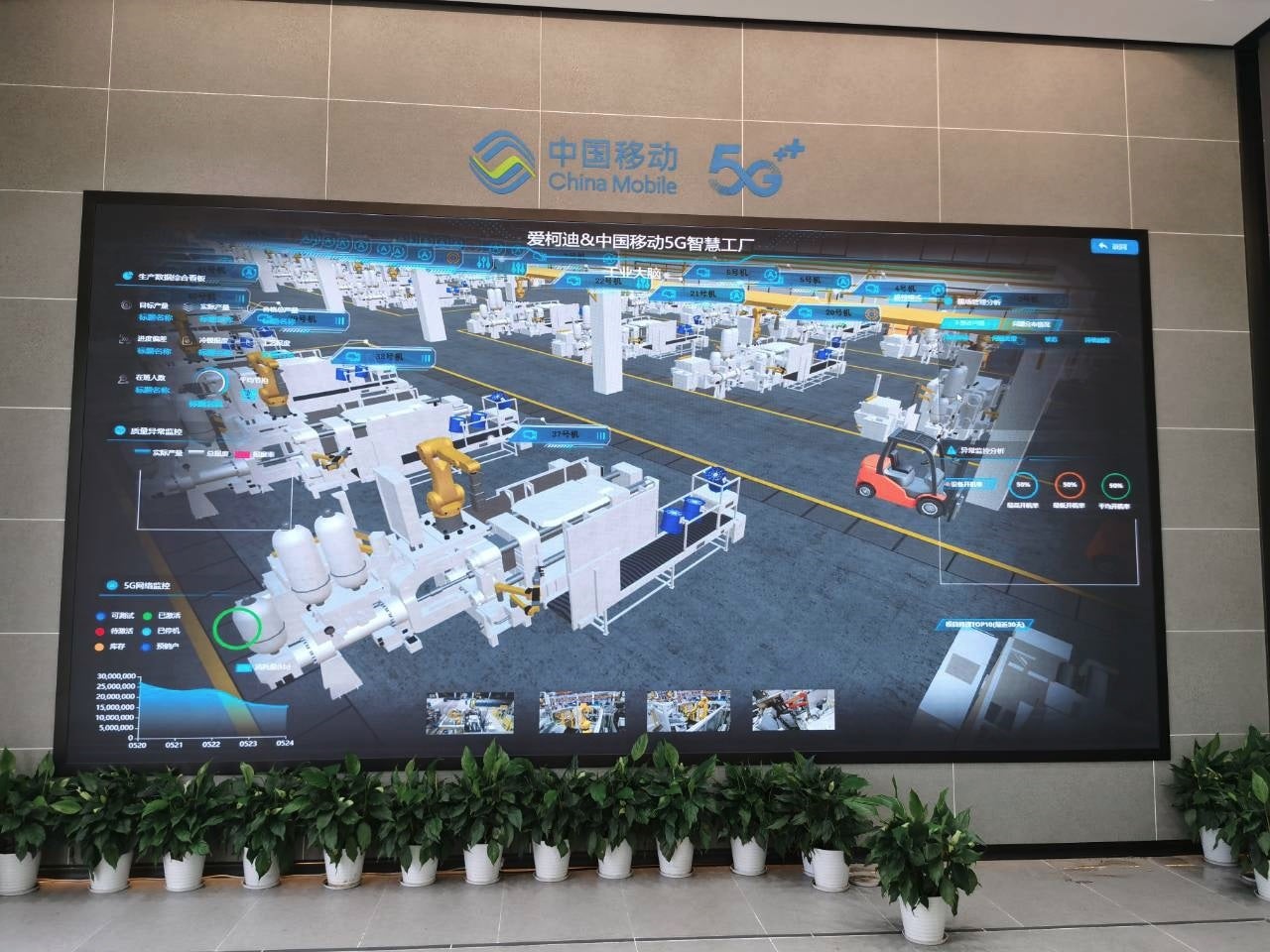
IKD Co. Ltd., a major designer and producer of precision die-cast automobile parts, turned to 5G to connect its factories and improve business outcomes. The automotive industry provides the most complex mass marketed product to date. 5G technologies are cited by many within the technology and telecoms industry as being key enablers of the fourth industrial revolution, or the seamless integration of industrial operational technology (OT) and machinery with digital information technologies (IT) like cloud and AI.
Change and volatility for automakers
One industry that stands to benefit from 5G and the convergence of OT and IT is the automobile manufacturing industry. From individual parts makers to world famous car brands, the industry is facing disruption across the globe. Everything from the sourcing or raw materials to the procurement of parts from OEMs continue to face global shortages and other uncertainties.
There is often a vast network of sub-suppliers involved and many interfaces between the parts and materials procured by a supplier. The industry is facing a global slowdown in automobile manufacturing. According to GlobalData’s Industry Profile on Global Car Manufacturing, auto manufacturing revenues globally fell by a CAGR of 0.4% from 2016 to 2019. While recovery is expected, this is putting pressure on the industry to rethink the way they operate.
There are many factors impacting this sector and causing the slowdown across the supply chain. Upstream pressures include the fluctuating prices for raw materials like aluminium and iron due to trade wars. There are also imbalances between supply and demand due to Covid which have forced some assembly lines to shut down.
On the downstream side factors include a shift in consumer preference for electric vehicles powered by lithium-ion batteries. There is also demand by some sectors for unmanned autonomous vehicles (UAVs) replacing fleets. In some markets, such as Western Europe consumers are looking at car-sharing platforms. In other words, consumers do not want to own a vehicle as an asset but consume the driving experience ‘as a service.’ Like many industries, there is an increased regulatory scrutiny around issues such as public health, safety, and sustainability.
Digital transformation and the IKD factory
As a manufacturer of high-precision aluminium die casting products, IKD has also had its fair share of industry challenges. Like others within the automotive sector, IKD is facing pressure to drive delivery of products with fewer resources. They are looking to provide better visibly into product tracing from raw materials through to shipped completed products. The company is also identifying ways to improve up-time rates for critical equipment and on-time delivery of materials from factory to warehouse.
How well do you really know your competitors?
Access the most comprehensive Company Profiles on the market, powered by GlobalData. Save hours of research. Gain competitive edge.

Thank you!
Your download email will arrive shortly
Not ready to buy yet? Download a free sample
We are confident about the unique quality of our Company Profiles. However, we want you to make the most beneficial decision for your business, so we offer a free sample that you can download by submitting the below form
By GlobalDataLike many in the industry IKD has recognized the benefits a digital transformation can have for operations and achieving business outcomes. IKD embarked on a digitalization strategy in 2016 that led to a partnership with China Mobile and Huawei culminating in the launch a 5G smart factory in 2019. Since this time, IKD have worked with its partners to create a 5G smart factory campus spanning three factories.
Designing a private 5G network
Huawei, China Mobile and IKD developed a private 5G network architecture that met security and performance requirements for IKD’s factories and specialized applications. This included providing a multi-access edge compute (MEC) data centre on-site for low-latency applications like AI-enabled computer vision, without having to send data across the public network.
The network also provided links to IKDs own private cloud as well as China Mobile’s. Beyond providing the network, and edge and cloud platforms for IKD, China Mobile also acted as an integrator, working with 3rd party software providers to integrate services with IKD’s industrial systems to support the 5G factory use cases. The private network incorporated some 15 base stations covering spectrum in the 2.6GHz and 4.9GHz bands. Private 5G solutions are being deployed by many of the world leading top automotive manufacturers in similar ways.
5G as a platform for a smart factory
For IKD, 5G was not just about improving connectivity or supporting a few use cases. It looked to integrate the technology into virtually every aspect of factory operation. There are at least a dozen applications in production at its Ningbo Campus alone. These include 5G Digital Twins, autonomous warehousing, 3D product scanning, production dashboard and management portal, AI-quality check, video security, precision positioning, and a blockchain product sourcing database. These use cases offer tangible business outcomes, for example:
- Factory Digital Twins – 3D models of the entire factory floor and all functional equipment are generated and updated in real time with streaming production data from machinery. These digital models allow data to be expressed visually and enable new ways of testing different production scenarios, predicting machine faults and product quality. This can be done without needing to physically test the machines. Overall, this enables, more efficient planning, reduces factory down-time and enables faster decision making.
- AI quality check– IKD installed 13high-definition cameras which automatically inspects the surface of die-cast materials for defects, in a twelve-step process using an AI-assisted computer vision program. This is supported by mobile edge compute. For IKD, this system has reduced product defects, wastage and the number of quality control employees needed at a single station from seven to one.
- Smart-warehousing – the 5G network allows autonomous guided vehicles to move inventory from the floor to the warehouse by delivering control instructions in real time. Some of these features include improvements in precision control; group robot collaboration, and intelligent scheduling. The results are reduced time from inventory production to storage and a reduction in manual processes.
Tangible results for IKD
Overall, IKD’s implementation of 5G systems and development of various use cases has led to tangible improvements in operational efficiencies
- Asset Usage – Uptime of die casting machines improved by 31.4% following implementation of 3G digital twins.
- Production Speed – Turnover time for semi-finished products, was reduced from 14 days to 5 days.
- Labor productivity – Through the use of AI and autonomous controls, the average revenue contributed by each worker rose by 75%, from 400,000 RMB (62,000 USD) per worker to 700,000 RMB (108,000 USD).
Outlook
Manufactures are facing increased pressure on margins from both upstream uncertainty in supply and downstream shifts in consumer demand and disruption from new entrants. New technology such as 5G that can deliver tangible business results. In the case of IKD, it enabled many other technologies that helped to increase yield, lower costs, and improve overall operational efficiency.
However, technology investments should not be about fixing a point problem, but instead provide a platform for transformation that can drive results across multiple systems and processes. Global manufacturing sectors, such as automotive, will continue to rely on 5G technologies. The German government’s high-tech strategy which promotes the computerisation of manufacturing, known as Industry 4.0, is becoming a lot more real with 5G.









Related Company Profiles
China Mobile Ltd